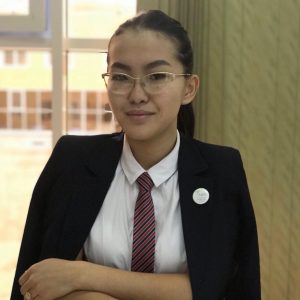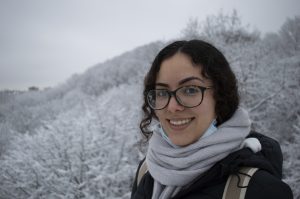Every year people from all around the world celebrate Christmas – it is one of the most important and popular festivals. Even though different countries have their traditions, many agree: Christmas is all about family, hope and joy.
“Columbians share a lot of similarities with the Lithuanian traditions when it comes to Christmas since we aim to share joy, love and warmth with loved ones. When I go to Kaunas centre and see all the decorations, I feel at home. Perhaps the only difference I have encountered is the type of meals we eat on Christmas Day,” says Gerson David Pinto, Kaunas University of Technology (KTU) student from Columbia.
Assemzhan Kunsakova, a KTU student from Kazakhstan, was impressed by the way Lithuanians celebrate Christmas because in December Kazakhstan people mainly prepare for New Year’s Eve. As for Christmas – it is not a very well-known celebration.

“I enjoyed the way people here are waiting for Christmas. While I was walking in Laisves Aleja, I could hear Christmas songs and all the Old Town, and the City Centre was decorated for the Christmas period. That shows that people are waiting for these holidays. Also, Lithuanians like to give Christmas gifts to each other and play Secret Santa, which is a warm thing to do,” says Assemzhan, a student of Chemical Engineering and Technology.
KTU student from Nicaragua, Alejandra Gutierrez, was surprised by the amount of snow and the cold in Lithuania in winter. Usually, in her home country, the temperature is over 10 degrees in December. The main difference between the two countries is that Nicaraguan Christmas is very loud – there is music in the streets, at home, whereas Lithuanian Christmas is quiet.

“In Nicaragua, the meaning of Christmas is to share hope, joy, and love, to cherish elders and young ones – it is a day to bring everyone together and feel like children again, feel that energy of renewal,” says Alejandra, an architecture student at KTU.
She adds that food in Nicaragua is also a big part of Christmas. Nicaraguan Christmas essentials are turkey, salads, mashed potatoes, Christmas bread with seeds, grapes, and a dessert – usually traditional vanilla cake with fruits in a flower shape. The main dish besides the turkey is the traditional food called “Relleno” (stuffing), which is made with three types of meat: pork, beef and chicken and also has raisins, capers, and plenty of other vegetables.
“It is quite a secret recipe and usually takes hours in the making. That’s why I always start two days before with my mother to make it. Relleno is food that signifies Christmas for us,” says Alejandra, a student at KTU.
During the festive period, many people go to the beach every day. People start celebrating Christmas on the morning of December 24th. Morning hours are for helping grandmothers with the dinner food and mothers with the decorations of the house. The afternoons are for spending time with friends, exchanging gifts, food and visiting the cemetery.
“We deliver roses and prayers to our loved ones that have passed. Finally, the nighttime comes, and it’s time to prepare the food. The kitchen is the centre of the moment, all the food being cooked and all the people snacking, laughing, others arriving, loud Christmas music in the background, decorations in sync. Imagine a house full of all those people that make you laugh, dance, and feel loved. There’s warmth, love in all the rooms, and of course loud music. On the 25th we rest or visit the cemetery. Some people go to church, others just sleep,” says Alejandra.
Christmas is the most anticipated time of the year in Colombia. According to Gerson David, children count days until Christmas since the beginning of August. For Columbians, this celebration starts on the 7th of December – they light candles all over the country. By tradition, the Epiphany celebrated on the 6th of January, is the end of Christmas.
“In the last week of December, family members gather to share joy and warmth with their loved ones. People who live far from the family have the tradition of travelling back home to spend either Christmas or to celebrate New Year’s Eve together,” says Gerson David, a first-year mechatronics student at KTU.
When I go to Kaunas centre and see all the decorations, I feel at home.
– Gerson David Pinto, KTU student from Columbia
The cities in Columbia are massively decorated and there is a tradition to make better decorations each year. Another tradition is to prepare special meals in December called “Comidas Navideñas” such as custard, cakes, tamales. According to him, the most unusual thing in Lithuania during the Christmas period is the snow. Colombia is a tropical and isothermal country. In most of their cities, one of the decorations is fake snow from cotton: “In winter in Lithuania, all the landscape feels like a decoration, honestly. I have loved it so far.”
He says that Christmas in Colombia means joy, love, reconciliation, unity, colourful cities, a time to meditate and most importantly, a time that brings families together and the quarrels and disputes seem to perish.
Gerson David has also lived in Tanzania, Africa, for about 6 years. According to him, people in Tanzania use the holiday season to travel back to their homes and villages to spend time with their relatives and loved ones.
“Usually cities don’t have large decorations but as we all know Christmas is not about decorations but people sharing joy with their loved ones,” says KTU student Gerson David.